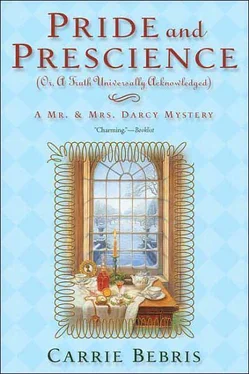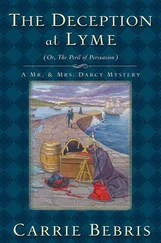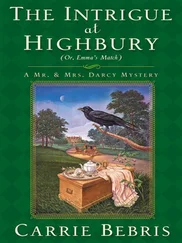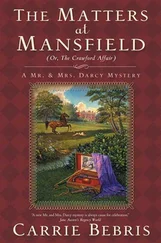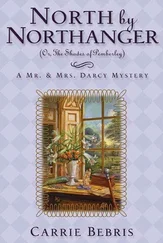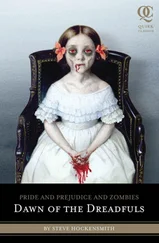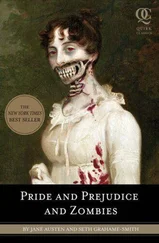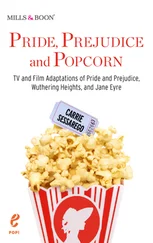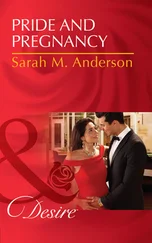“Whence does the disease derive? And why has it stricken only his herd and not those of other farmers?” Randolph shrugged. “It may indeed have occurred naturally. I merely point out that it’s your illiterate tenant who considers more explanations than you do.”
“But your ‘mysterious articles,’ at the museum,” Elizabeth said. “Some looked quite valuable, like they were created by or for people of great means.”
“Indeed, they were. Most of them date back to times when belief in magic was more common and embraced by wealthy and poor alike. The more recent items belonged to exceptional individuals attuned to the presence of the extraordinary in our world.”
“In other words, modern people who still believe in hexes and sorcery?” Darcy asked.
“You say that in a tone laced with ridicule. But I have seen enough evidence of such things that I cannot deny their existence. Why, just last month, an aristocratic lady of whom you have all heard, but whose identity I shall protect, pointed out to me the unusual cornerstone of her country house. Inscribed beneath the date were some Latin phrases. The lady told me that according to family legend, the mansion had been built on land that had once been a druid grove. Romans seized it, razed the trees, and erected a fortification on the site. Within a year of its completion, every occupant was dead of a mysterious fever. More soldiers came. They, too, died, and the fortress was abandoned. The elements wore it down, but in Henry the Sixth’s time a new manor was raised. Fever plagued its occupants for decades, claiming heirs one by one. The family, in danger of its lineage ending, leveled the building.
“Again, the site lay unused for many years, but eventually the land passed to a younger son who wanted to develop the property. He constructed the residence that stands there today and, with the help of a local wisewoman, inscribed and laid the cornerstone himself. At the time I spoke with the current mistress, the house seemed to have escaped the doom of its predecessors. No fever had troubled the family for five generations.
“She and her husband, however, were improving their estate and the stone was part of a wall scheduled to be removed. ‘Revise your plans,’ I urged her. ‘Don’t disturb the cornerstone. Those words are a charm — the stone protects the occupants of this house.’ She didn’t heed my advice, and within a week of its removal her eldest son took to bed with a putrid fever. The stone was quickly set back in place, and he recovered.”
“This, you call evidence?” Darcy folded his letter. “I call it coincidence. Certainly not the result of some old druid’s spell.”
“Not a spell, necessarily. While it’s possible that the druids themselves laid a curse, it also may be that the Romans incurred the wrath of higher powers to whom the grove had been consecrated.”
A prickling sensation danced across the back of Elizabeth’s neck. She couldn’t decide whether Randolph was the most insightful or most insane person she’d ever met. “It does seem odd that so many people succumbed to fever, over so many years, in the same place.”
“Not at all,” Darcy said. “People die of fever all the time. Next the professor will tell us that the Black Death was caused by someone picking flowers in a faerie glen.” He passed wax over the candle flame until it softened, and sealed his note. “With all due respect to you and your studies, Randolph, I remain unconvinced.”
Randolph half-smiled. “Most people do. ’Tis my lot in life, it seems, to stand accused of tilting at windmills.”
Parrish, who’d been following the discussion closely, cast a look of apology at his friend. “I’m afraid I have to side with Mr. Darcy. Much as I enjoy a good story, tales of spells and spirits are really just flights of fancy.” He handed Elizabeth’s book back to her.
She accepted the volume in puzzlement. Of all the people in the room, she’d expected Parrish to come to Randolph’s defense. “I thought you were a patron of the professor’s work?”
“I am. Magic so permeates life in New Orleans, from slave vodun to high society séances, that one can’t help but take at least a passing interest in it. But Randolph’s studies appeal to me for their entertainment value, not for any practical purpose. I don’t believe the artifacts themselves hold any power. Rather, I’m intrigued by their histories. I support his work for the same reason I buy Mrs. Radcliffe’s books — amusement.”
Poor Professor Randolph — surrounded by skepticism from all quarters! Elizabeth quite felt for the man. She regretted having told Darcy earlier this evening about her encounter with Randolph in the conservatory, sure that the conversation she’d repeated had further prejudiced her husband against the archeologist.
Randolph fished in his waistcoat pocket and withdrew his pocketwatch. The star symbol on the outside caught the firelight as he clicked it open to consult the time. Remembering the runes inscribed within, Elizabeth longed to ask him about them further. But she held her tongue, not wishing to expose him to additional ridicule from their present company.
Bingley also seemed to take compassion on the professor. “Darcy, I wouldn’t cling to my cynicism so stubbornly for all the world,” he declared. “In fact, I’ve half a mind to ask Randolph here to inspect my new estate for evidence of curses and charms before I commit to its purchase.”
“If he actually discovers any, then I will have him to Pemberley for the same.”
“You either chuse this method of passing the evening because you are in each other’s confidence and have secret affairs to discuss, or because you are conscious that your figures appear to the greatest advantage in walking.”
Darcy to Elizabeth and Miss Bingley, Pride and Prejudice,
Chapter 11
Elizabeth stared at the oak beams above her head, willing herself to fall asleep before the clock struck another hour. Slumber eluded her tonight, though she could not identify why. Darcy, his arm wrapped around her possessively, dozed beside her, oblivious to the insomnia that plagued her.
The sound of footsteps in the hall caught her ears. ’Twas late for even servants to be about. The light steps passed her door, then seemed to backtrack and pass again. Curious, she disentangled herself from Darcy’s embrace and slipped on her dressing gown. She padded to the door, eased it open, and peeked out.
Caroline Parrish paced the hall. She was oddly dressed — wearing nightclothes, but with the addition of shoes and a spencer. Insensible to Elizabeth’s observation, she approached her own door, stopped short, then retreated toward the central staircase. Three times she repeated the ritual before pity moved Elizabeth to intercede.
“Mrs. Parrish,” she whispered, stepping into the hall and closing her own door behind her so as not to disturb Darcy. “Are you all right?”
Caroline halted midstride and regarded Elizabeth uncertainly, as if trying to identify her. Though candles in sconces lent the hall but dim light, the two women stood within a few feet of each other — close enough that Elizabeth could discern several black smudges on Caroline’s nightdress. At that proximity, Elizabeth should have been instantly recognizable to Caroline.
“Mrs. Parrish? It’s me, Elizabeth Darcy. Do you need something?”
Caroline simply stared.
“Mrs. Parrish?”
Caroline did not even blink. Indeed, she seemed even more dazed than when Elizabeth and Darcy had found her wandering Bow Street. Was she sleepwalking? Perhaps she had become disoriented and was unsure which door was hers.
Читать дальше
